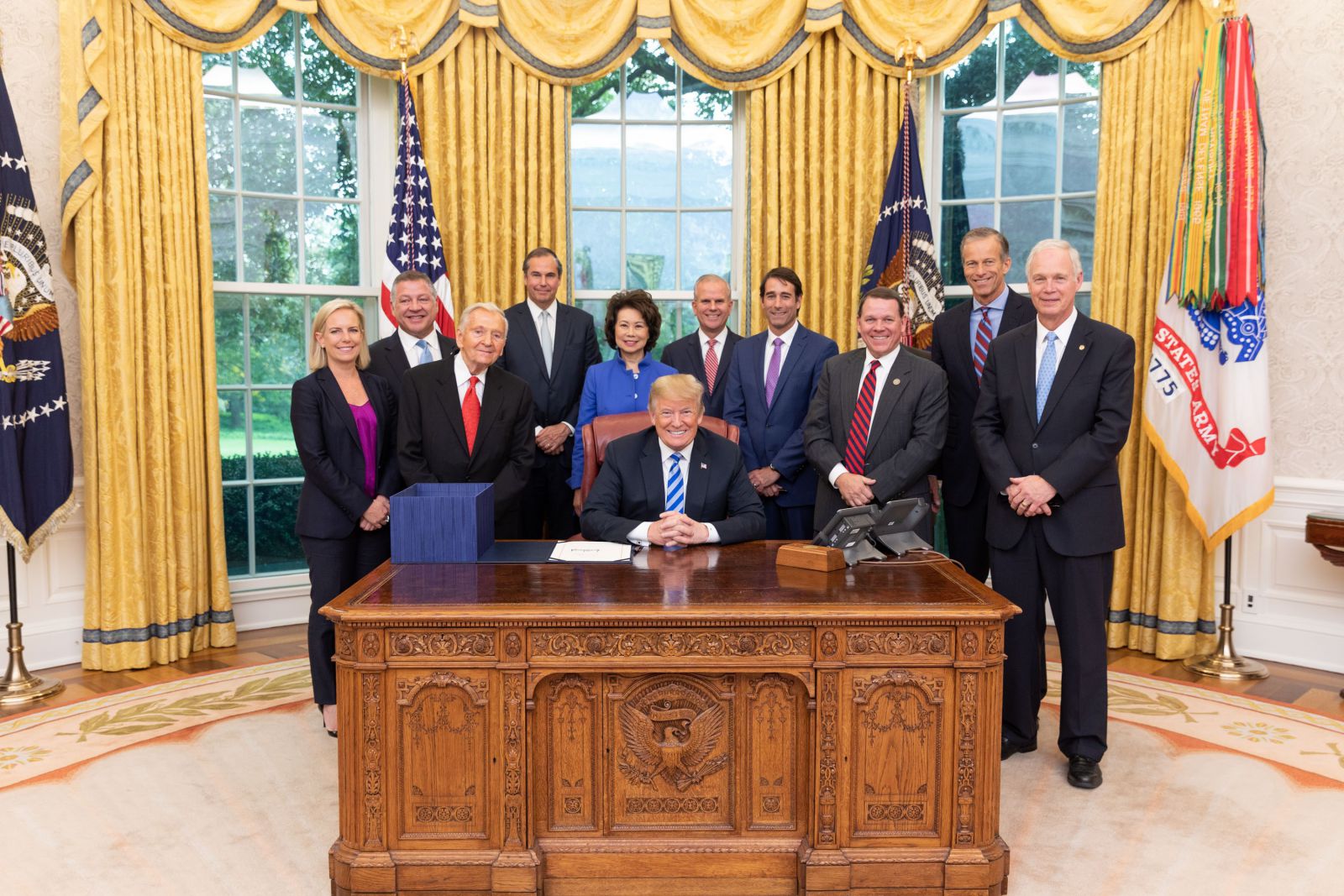October 5, 2018
Legislation strengthens U.S. development finance

WASHINGTON – Ray W. Washburne, President and Chief Executive Officer of the Overseas Private Investment Corporation (OPIC), the U.S. Government’s development finance institution (DFI), issued the following statement today after the President signed the Better Utilization of Investments Leading to Development (BUILD) Act of 2018 into law:
“The President’s signature launches a new era for development finance. With more tools, more flexibility and more running room—the United States will be able to have even greater impact. That this substantial proposal went from the President’s budget to his desk in just eight months is a recognition of the growing role development finance will play to meet development needs and advance U.S. interests. I am grateful for the close collaboration between the Administration and bipartisan leaders in Congress that made this possible. I look forward to continuing this collaboration as we transition to the new United States International Development Finance Corporation."
Earlier this year, the White House announced its support for the BUILD Act, which mirrors the Office of Management and Budget’s “Reform Plan and Reorganization Recommendations.”
In July, the BUILD Act passed the House of Representatives as a standalone piece of legislation (H.R. 5105) by voice-vote. The BUILD Act was incorporated into H.R. 302, the FAA Reauthorization Act of 2018, which passed the House last week by a vote of 398-23. The legislation passed the Senate by a vote of 93-6. The BUILD Act was introduced by Congressmen Ted Yoho and Adam Smith and Senators Bob Corker and Chris Coons in February.
With the President’s signature, OPIC now enters into a transition period. During this several month transition period, the Administration will have 120 days to present a reorganization plan to Congress to transfer agencies, personnel, assets, and obligations to U.S. International Development Finance Corporation. Normal OPIC business operations will continue during this transition period.
Read more about the BUILD Act and OPIC's transition to U.S. International Development Finance Corporation here.
###
The Overseas Private Investment Corporation (OPIC) is a self-sustaining U.S. Government agency that helps American businesses invest in emerging markets. Established in 1971, OPIC provides businesses with the tools to manage the risks associated with foreign direct investment, fosters economic development in emerging market countries, and advances U.S. foreign policy and national security priorities. OPIC helps American businesses gain footholds in new markets, catalyzes new revenues and contributes to jobs and growth opportunities both at home and abroad. OPIC fulfills its mission by providing businesses with financing, political risk insurance, advocacy and by partnering with private equity fund managers.
OPIC services are available to new and expanding businesses planning to invest in more than 160 countries worldwide. Because OPIC charges market-based fees for its products, it operates on a self-sustaining basis at no net cost to taxpayers. All OPIC projects must adhere to best international practices and cannot cause job loss in the United States.
